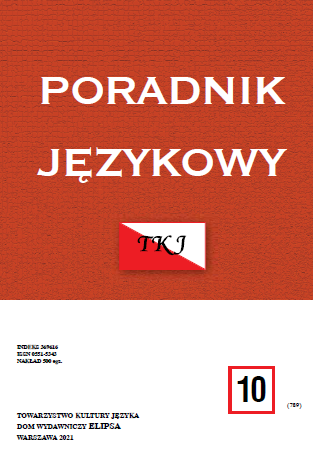RETORYKA W POLSCE PO 1989 ROKU. PRZEGLĄD KIERUNKÓW BADAŃ
RHETORIC IN POLAND AFTER 1989. AN OVERVIEW OF RESEARCH DIRECTIONS
Author(s): Anna Bendrat, Agnieszka Budzyńska-Daca, Agnieszka Kampka, Ewa Modrzejewska, Maria ZałęskaContributor(s): Monika Czarnecka (Translator)
Subject(s): Media studies, Politics and communication, Transformation Period (1990 - 2010), Present Times (2010 - today), Sociology of Politics, Rhetoric
Published by: Dom Wydawniczy ELIPSA
Keywords: rhetoric in Poland; language of politics; rhetorical criticism; rhetoric and media; teaching of rhetoric; Polish Rhetoric Society;
Summary/Abstract: This paper is dedicated to the development of rhetoric in Poland after 1989 taking into account adaptation processes at two levels: communication practices and research reflection. The sociopolitical transformations have enabled an unrestricted development of rhetorical activities, which were impracticable in the former Eastern Bloc countries: advertising and marketing, political debates, civic engagement, academic freedom. The adaptation has taken place at the level of communication habits of citizens and rhetorical practices of rhetoric researchers themselves. The study adopts the descriptive methodology and focuses on several aspects: the process of internal differentiation of rhetorical studies, the influence of the American rhetorical criticism on the studies, the rhetorical perspective in linguistic research, media studies, and politics. The paper emphasises the cultural characteristics of Polish rhetorical studies, which draw inspiration from three main sources: 1) Old Polish oratory and its modern analyses from the perspective of literary studies; 2) analyses of the propaganda of the times of the Polish People’s Republic, including the media; 3) modern concepts from the areas of argumentation, rhetorical criticism, discourse analysis, and media studies. The overview shows that, after 1989, rhetorical studies can be described as a self-organising system created by dense intertextual relations, relationship networks, and institutional frameworks rather than as a compilation of sparse individual works.
Journal: Poradnik Językowy
- Issue Year: 2021
- Issue No: 10
- Page Range: 26-50
- Page Count: 25
- Language: Polish
- Content File-PDF

